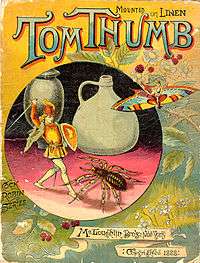pasaka
Cebuano
Pronunciation
- Hyphenation: pa‧sa‧ka
Adjective
pasaka
- vertical; standing, pointing, or moving straight up or down; along the direction of a plumb line; perpendicular to something horizontal
Latvian

Pasaku grāmata
Etymology
From pa- + the verb sacīt (“to say, to tell”) (in its present tense stem sak-); cf. dialectal saka (“tale, saying”). The original meaning was thus “something to be said, told.” Cognates include Lithuanian pãsaka.[1]
Pronunciation
Noun
pasaka f (4th declension)
- legend, folktale, fairy tale (folkloric narrative, typically including fantastic or magic elements; the corresponding folkloric genre)
- vākt, publicēt tautas pasakas ― to collect, to publish folk tales
- latviešu tautas pasakas ― Latvian folktales
- pasaku teicējs, stastītājs ― storyteller
- pasaku grāmata ― book of folktales
- stastīt bērniem pasakas ― to tell fairy tales to the children
- dzīvnieku pasakas ― animal tales
- K. Skalbes pasakas ― K. Skalbe's fairy tales
- (figuratively) uncommonly beautiful, pleasant, good
- kā pasakā ― as in a fairy tale (i.e., very good, very beautiful)
- tā nebija platmale, bet pasaka! ― that was not a hat, but a fairy tale!
- visiem tas šķita pasaka, nevis kuģis ― to all it seemed more like a fairy tale than a ship
- (usually in the plural) nonsense, fantasy, exaggerations, rumors
- nestāsti nu pasakas! ― don't you tell fairy tales!
- tās ir tīrās pasakas ― this is pure fantasy
Declension
Declension of pasaka (4th declension)
| singular (vienskaitlis) | plural (daudzskaitlis) | |
|---|---|---|
| nominative (nominatīvs) | pasaka | pasakas |
| accusative (akuzatīvs) | pasaku | pasakas |
| genitive (ģenitīvs) | pasakas | pasaku |
| dative (datīvs) | pasakai | pasakām |
| instrumental (instrumentālis) | pasaku | pasakām |
| locative (lokatīvs) | pasakā | pasakās |
| vocative (vokatīvs) | pasaka | pasakas |
Derived terms
Verb
pasaka
References
- Karulis, Konstantīns (1992), “pasaka”, in Latviešu Etimoloģijas Vārdnīca (in Latvian), Rīga: AVOTS, →ISBN
Lithuanian
Declension
declension of pasaka
| singular (vienaskaita) | plural (daugiskaita) | |
|---|---|---|
| nominative (vardininkas) | pãsaka | pãsakos |
| genitive (kilmininkas) | pãsakos | pãsakų |
| dative (naudininkas) | pãsakai | pãsakoms |
| accusative (galininkas) | pãsaką | pãsakas |
| instrumental (įnagininkas) | pãsaka | pãsakomis |
| locative (vietininkas) | pãsakoje | pãsakose |
| vocative (šauksmininkas) | pãsaka | pãsakos |
This article is issued from
Wiktionary.
The text is licensed under Creative
Commons - Attribution - Sharealike.
Additional terms may apply for the media files.